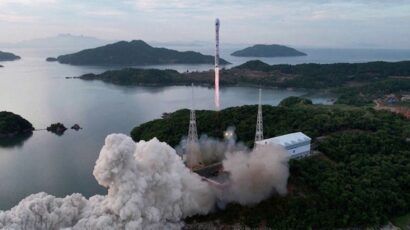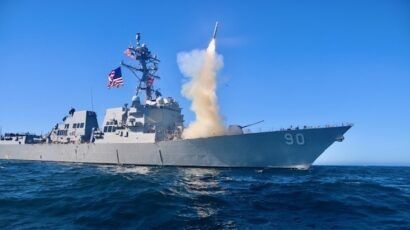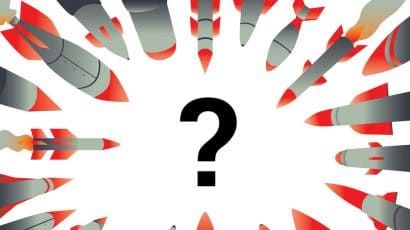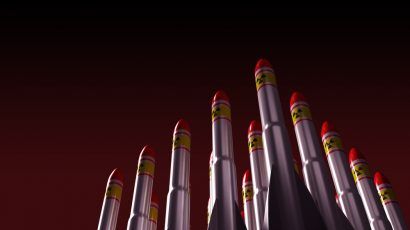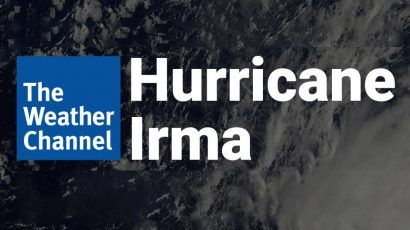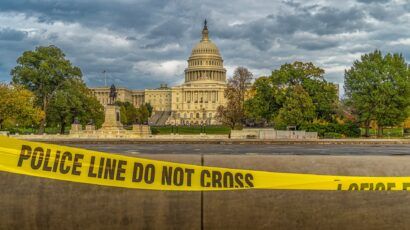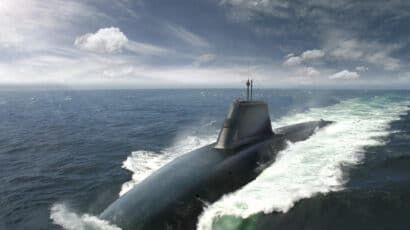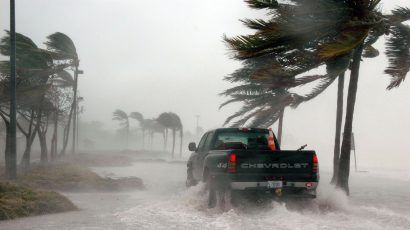Search results for trump
The INF Treaty is done, but lessons for policy remain
The Intermediate-Range Nuclear Forces Treaty, or INF, ends on August 2, bringing to a close one of the most remarkable chapters in arms control history. There is much about the INF story that bears recalling, as it provides lessons for the conduct of US diplomacy and policy making in the uncharted waters ahead. For decades, … Continued
Study: On climate change and elsewhere, politicians more conservative than citizens
New research reveals that it’s more than just inside-the-beltway thinking.
China, Germany step up as US retires from world leadership
China and Germany will take the lead roles traditionally held by the United States
Adults won’t take climate change seriously. So we, the youth, are forced to strike.
Youth demonstrations on climate change have spread around the world, inspired by Swedish activist Greta Thunberg's weekly school strikes. Ahead of a global day of action on March 15, the teen leaders of the US strike movement explain what they're fighting for, how adults have let them down, and why they can't wait any longer to act.
Why North Korea’s new spy satellite could actually be a good thing
North Korea’s new reconnaissance satellites have offensive military uses, such as enhanced targeting. But they also have upsides for stability on the Korean Peninsula.
A new nuclear-armed, sea-launched cruise missile: Just say no
Those who oppose the proposed new nuclear-armed, sea-launched cruise missile often argue that it is redundant and costly and will limit the US Navy’s conventional war-fighting capability. Their arguments are cogent, but the situation is even worse: Deployment of such a weapon would seriously deteriorate, not improve, US national security and impede the defense of allies.
An existential discussion: What is the probability of nuclear war?
“Father of the internet” Vinton Cerf and “father of public key cryptography” Martin Hellman agree that the US needs to understand the risk of nuclear war. However, they disagree about the best means for understanding that risk. In side-by-side opinion pieces, Cerf and Hellman present their opposing views.
When shows of strength are risky: the case for restraint on North Korea
US steps to demonstrate resolve in the face of North Korean nuclear threats come with potential dangers.
Dawn of a new Armageddon
A personal essay on the meaning of a ballistic missile alert issued in Hawaii in January 2018, at the height of nuclear tensions between the United States and North Korea.
Tell a friend about the Bulletin!
Invite a friend to join the conversation! The Bulletin is growing a community of people who want science to serve humanity, not threaten it. Help us reach more people like you–share a Bulletin article with two friends, and ask them to sign up here for our regular article summaries. The Bulletin‘s content is both influential and understandable–an authoritative guide that confronts man-made … Continued
Putting the nonproliferation back in the NPT
The Non-Proliferation Treaty needs our help to sustain its principal function—barring the way to more nuclear weapons countries—because it has been getting watered it down.
Think positive: How to get North Korea to roll back its nuclear weapons activity
“Rewarding” North Korea with positive inducements to roll back its nuclear weapons activity is likely to be more effective than economic sanctions or military intervention.
The weather report is climate science, too
Why do so many Americans believe weather forecasts that are based on satellite data and computer models, but distrust climate predictions?
No end of a lesson on the “big stick”
A critique of The Big Stick: The Limits of Soft Power and the Necessity of Military Force, by Eliot A. Cohen.
Interview: Lawrence Norden on US election security
A deep dive into the nuts-and-bolts of election security, resiliency, ballots, and ballot-counting, and why it would be so hard to produce a false result. Among other things, 99 percent of polling places now have paper printouts of each electronic vote, offering hard physical evidence—a paper trail—in the event of an audit or a full-blown recount. That was not the case a decade or so ago, when electronic voting was first getting widely introduced.
America’s new multibillion-dollar nuclear warhead is a great deal for the British
London needs the new W93 warhead more than Washington does. The rush and cost for the parallel program are not yet worth it for the United States.
What strategic stability? How to fix the concept for US-Russia relations
Washington and Moscow have long had a verbal attachment to what they call “strategic stability”—a promise not to engage in nuclear brinksmanship and the basis for a constructive dialogue. However, as a concept, strategic stability has not aged well.
Is FEMA footing the bill for others’ repeated climate-change mistakes?
After each climate-related disaster, Washington has continually opened its purse ever wider. But are individuals and beach-front communities abusing this federal government largesse—taxpayers’ money—to build and re-build in the same high-risk, coastal flood zones without making any effort to move to higher ground, use flood-resistant construction... or not even build in the first place? And is the same true of wildfire and other risks?
The end of the INF
The INF and the future of arms control Last week, the US withdrew from the 1987 Intermediate-range Nuclear Forces Treaty, with Russia following suit days later. The US decision has elicited criticism from many; in the 2019 Doomsday Clock Statement, the Bulletin Science and Security Board recognized the importance and impact of the INF, writing “Its potential death foreshadows a … Continued




